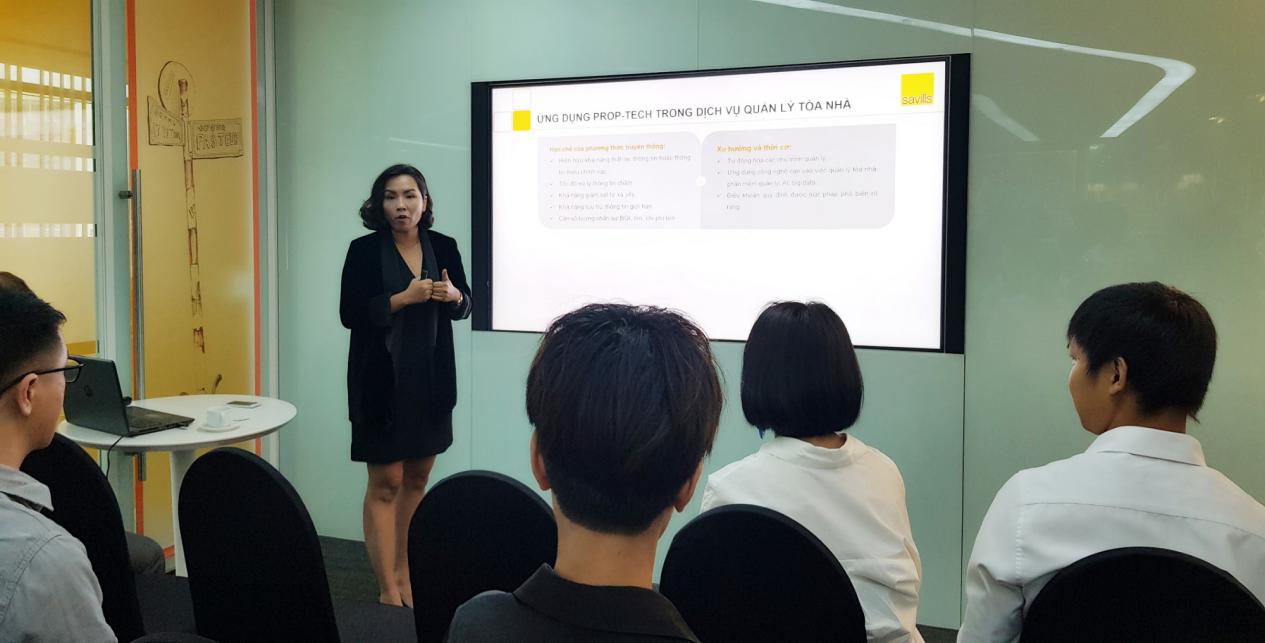
As city becomes smarter and buildings become more complex, Proptech will certainly be fundamental in the development of real estate market.
According to experts around the globe, the property technology – or proptech sector – may well be poised to follow the trajectory of its sister-sector.
Very simply, proptech refers to technology that is aimed at the real estate industry and attempts to change the way we buy, sell, finance and manage property. Urban planning, design and construction, search, sale and acquisition, leasing and management, data analytics and sustainability are identified as the areas most likely to rapidly innovate and attract capital investment. In such way, proptech is the latest trend in property market and have been building such mass and momentum that it will change the market in recent time.
There are three sub-sectors (verticals) of proptech globally:
- Real estate fintech – platforms which facilitate the trading of real estate ownership;
- The shared economy – platforms which facilitate the use of real estate assets, and;
- Smart real estate – platforms which facilitate the operation and management of real estate assets.
“Revolutionary property management can be achieved through leveraging technology.” Said Tran Minh Ai, Director of Property Management

Ms. Tran Minh Ai, Director of Property Management.
Proptech in property management
No two buildings are the same, so any property management software solution must ultimately provide a degree of flexibility. This is especially important when it comes to reporting functions.
Recent years have seen a general shift towards the use of cloud based ‘Proptech’ solutions and an explosion of new software vendors entering the market, fighting for attention and lifting the bar in terms of user experience for residents, developers and property managers. We now expect to be able to access and use systems from any device in any location.
When developers and property managers looking for a management software package, there are two main options available: buy an off-the-shelf software package (ready-made and available to a wide range of demands), or have a bespoke software solution developed (especially written to meet specific management requirements). Some prefer to procure off the shelf software solutions, which can offer considerable advantages in terms of time scale and cost. Others choose to build and maintain a bespoke solution that is able to meet their exact needs. In either circumstance, it’s rare that these solutions can cover all requirements.
The explosion of new concepts has fuelled and necessitated an age of integration. It’s now essential that management tools are provided with an application programme interface (API): essentially a subset of routines, tools and protocols that allow us to knit systems together and ensure we have efficient, effective and accurate mobility of our data.
Although the business requirements associated with property management software remain largely unchanged, advances in technology mean we are now able to collect and process more data than ever before. This is creating new reporting possibilities that simply didn’t exist in the past.
More in-depth analysis of data, and the availability of this information in the palms of our hands, drives better decision making and in turn the feedback loop gets faster. With the rise of Artificial Intelligence (AI), future data analysis is likely to be able to unlock even more treasures, so it’s important that we can rely on the foundations of the technology built and data collected today.
Looking ahead, AI-driven technology developments will likely augment and facilitate many property systems and processes, but also create more opportunities for human engagement with data. Property managers will have to adapt reporting solutions for the ‘on demand’ generation and be able to provide services direct and bespoke to each resident. Everything will need to be faster, and even more flexible, with technology following suit.
Proptech in present tense
Proptech is all around us and growing. Vietnam has a young and entrepreneurial workforce that has embraced the startup culture, pushing local Proptech further. Recent Vietnamese Proptech startups listed on Unissu include: Saigon High Tech Park, Gachvang, Homedy, Batdongsan, Hatch, Cyfer, Relex and Cloudjay.
Shared workspace is booming as Vietnam and HCMC evolve to the digital hub of South East Asia. The BPO model that boomed in Philippines is now replicated in Vietnam with highly effective outsourcing for coding and development. Government subsidies, effectively priced and high quality workforce and ambitious attitudes have drawn venture capitalists such as ‘500 Start Ups’ to invest and catalyze via their Saola Accelerator.
Proptech is highlighted in the built environment with mega local examples BRG and Sumitomo pumping US$4.2 billion into the creation of Hanoi Smart City. ‘Smart Cites’ and its permutations cover a range of measures from fully meshed neighborhoods understanding pedestrian and public space movement through to the recent roll out by Siemens for the trial of the Hanoi tra‰c management system.
Around 17% of all recent Proptech capital raisings have been in the Property Management space. Not surprising, when this is one of the most resource intensive property disciplines, that can also derive the greatest benefit from new technology. BIM modelling, IoT and 5G will apparently enable rapid advancement provided building owners are prepared. However, 5G does not have the reach of 5G and cannot travel as well through physical objects, therefore limiting its use as the panacea of built environment monitoring. Beyond monitoring for utilities, infrastructure, personnel, life cycle and environment there exists the real world interaction, such as owners, residents, occupiers, suppliers and contractors.
The first ever Proptech in Vietnam
Recognised the need for technological solutions in property management, Savills Vietnam has utilized technological advances and new consumer attitudes in order to create SPMS. This is the official and direct communication channel between to connect the Savills Property Management team, the residents and the developers. The new software is expected to set a new standard in Property Management and address the needs of residents, ensuring the integrated operation of the building.

Mr. Neil MacGregor introducing Savills' SPMS.
Mr. Neil MacGregor, Managing Director of Savills Vietnam said: “Savills Vietnam recognises the impact of technology in optimizing property management services and improving the lives of residents. SPMS was developed by our dedicated team in Vietnam, who have directly worked with developers and residents on a daily basis to ensure the success of the application. We strongly believe that our investment in SPMS will pave a new path in real estate technology and strengthen our market leading position, especially within the property management sector.”
Savills Vietnam has harnessed effective modern tools by creating Savills Property Management Solutions (SPMS). This new application provides a direct communication channel between tenants and Savills property management, ensuring all requests are met.
The mobile application offers an immediate and personalized response via an automated system for the residential and commercial projects currently under Savills management. With clear communication between residents and property managers, SPMS enables residents to process bills and book building facilities with just a few simple clicks.
Developed by the experienced Savills team, the bespoke software solution is expected to set a new precedent in Property Management and will meet any immediate resident/ tenant.
The Savills Property Management Solutions has now been adopted in 28 buildings managed by Savills Vietnam, and ongoing for 16 others across the country in Ho Chi Minh City, Hanoi and Danang. SPMS key objectives are twofold:
- To make residents lives more enjoyable through better communication.
- To manage buildings more effectively thus reducing ownership costs and enhancing asset value.
SPMS is a user-friendly, management information system available via mobile application and a centralized website.


















